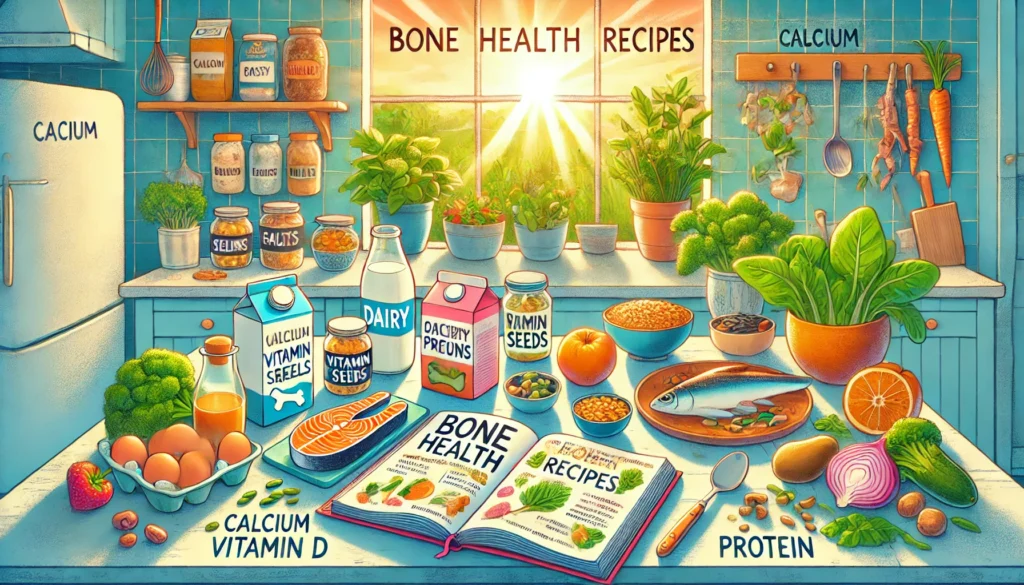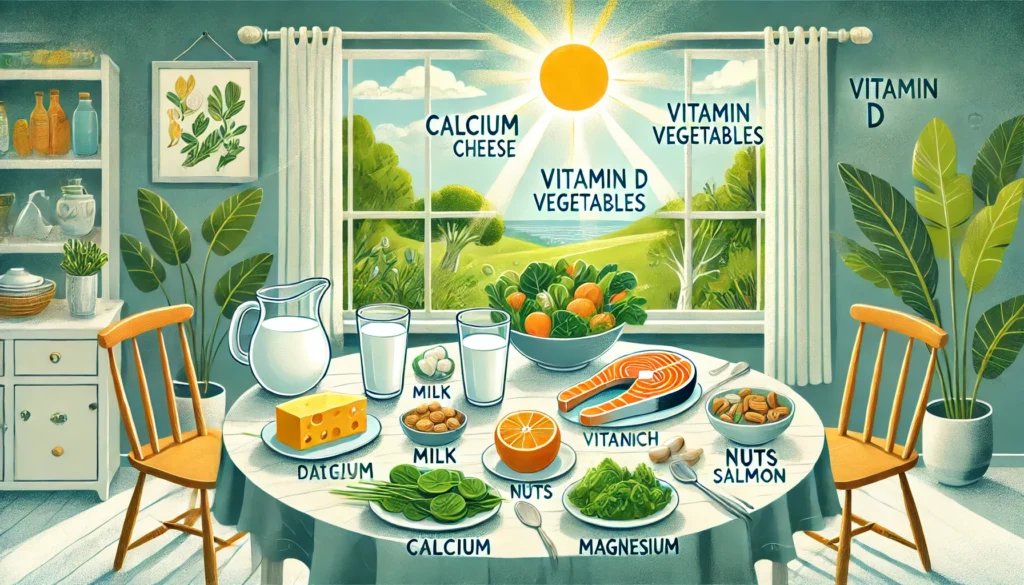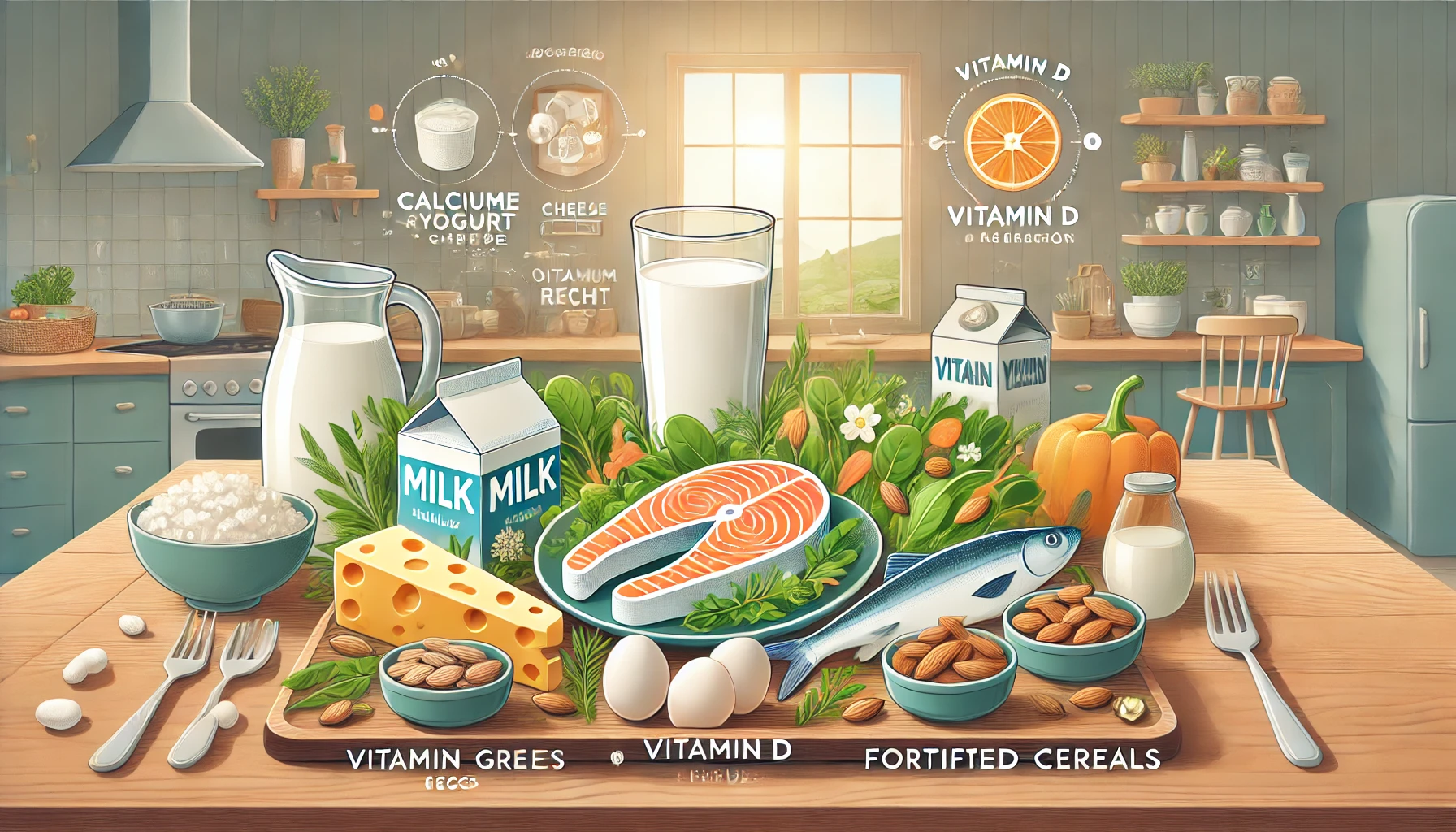Meta Description: Discover the best osteoporosis healthy diet plan to strengthen your bones. Learn about calcium-rich foods, vitamin D sources, and meal ideas to prevent bone loss naturally.
Introduction: Why Diet Matters for Osteoporosis Prevention
Osteoporosis affects millions worldwide, weakening bones and increasing fracture risks. While genetics and age play a role, a nutrient-rich diet is one of the most effective ways to protect bone density. This guide explores the best foods, vitamins, and habits to build stronger bones and reduce osteoporosis progression for healthy tips.

The Science Behind Osteoporosis and Nutrition
Bones are living tissues that constantly remodel. After age 30, bone loss accelerates, but proper nutrition can slow this process. Key nutrients for bone health include:
- Calcium: The primary building block of bones.
- Vitamin D: Enhances calcium absorption.
- Protein: Supports bone structure and muscle strength.
- Magnesium & Vitamin K: Aid in bone mineralization.
A balanced osteoporosis diet ensures these nutrients work synergistically to maintain bone strength.
Top 10 Bone-Healthy Foods for Osteoporosis
Incorporate these nutrient-dense foods into your daily meals:
- Dairy Products: Milk, yogurt, and cheese (choose low-fat options).
- Leafy Greens: Kale, spinach, and collard greens.
- Fatty Fish: Salmon, sardines, and mackerel (rich in vitamin D).
- Fortified Foods: Plant-based milk, cereals, and orange juice.
- Nuts & Seeds: Almonds, chia seeds, and flaxseeds.
- Tofu & Tempeh: Calcium-fortified soy products.
- Beans & Lentils: Black beans, chickpeas, and edamame.
- Eggs: A natural source of vitamin D.
- Whole Grains: Quinoa, oats, and brown rice.
- Fruits: Oranges, figs, and dried apricots.
Foods to Avoid for Osteoporosis
Certain foods can weaken bones or hinder calcium absorption:
- Excess Salt: High sodium increases calcium excretion.
- Sugary Snacks: Sugar disrupts mineral balance.
- Caffeine & Soda: Limit to 2-3 cups daily to avoid calcium loss.
- Alcohol: Heavy drinking reduces bone formation.

Sample 7-Day Osteoporosis Diet Plan
Day 1:
- Breakfast: Greek yogurt with chia seeds and berries.
- Lunch: Spinach salad with grilled salmon and quinoa.
- Dinner: Stir-fried tofu with broccoli and brown rice.
Day 2:
- Breakfast: Fortified oatmeal with almonds and figs.
- Lunch: Lentil soup with kale and whole-grain bread.
- Dinner: Baked chicken with roasted Brussels sprouts.
(Continue with similar nutrient-focused meals for Days 3–7.)
Supplements for Bone Health: Do You Need Them?
While food should be your primary source, supplements can fill gaps:
- Calcium Carbonate/Citrate: Aim for 1,000–1,200 mg/day (consult your doctor).
- Vitamin D3: 600–800 IU daily, especially in low-sunlight areas.
- Magnesium & Vitamin K2: Support calcium utilization.
Avoid overdosing, as excess calcium may increase heart risks.
Lifestyle Tips to Maximize Bone Strength
- Weight-Bearing Exercise: Walking, dancing, or strength training 3–4x weekly.
- Quit Smoking: Smoking accelerates bone loss.
- Sun Exposure: 10–15 minutes of sunlight daily for vitamin D synthesis.
FAQs About Osteoporosis and Diet
Q: Can a vegan diet prevent osteoporosis?
Yes! Opt for fortified plant milk, tofu, and leafy greens. Monitor vitamin B12 levels.
Q: Is dairy necessary for bone health?
No—plant-based calcium sources work, but ensure adequate intake (500–700 mg/day).
Q: How does protein affect bones?
Too little protein weakens bones, but balance it with calcium-rich foods.
Conclusion: Take Charge of Your Bone Health Today
An osteoporosis healthy diet isn’t just about adding calcium—it’s about creating a sustainable, balanced eating pattern. Pair your meals with regular exercise and avoid bone-damaging habits to safeguard your skeleton for years to come.

